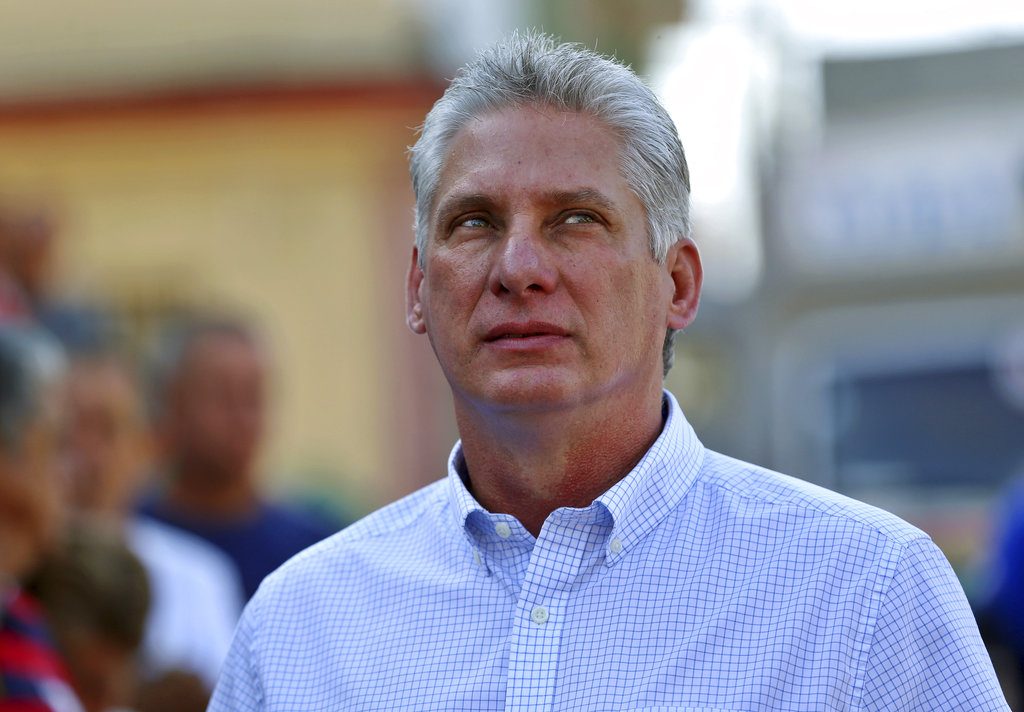Less than a month is left for Cuba to have a new president. In terms of international policy, the entire world has been sensitive to this moment of change and has procured to accompany the process. This is not the case with the United States, whose current president retook the type of discourse and policies that prevailed until 2016, before Barack Obama, in coordination with the Cuban government, thawed the Cold War ice and sat at the negotiation table with Cuba.
In an extensive article, the U.S. magazine Foreign Affairs explores the conditions of the island’s “new era” and how the U.S. hostility damages that country’s interests not only in Cuba but also on a regional and world level.
The differences
“Meet the new boss,” says the text signed by Marguerite Jiménez, senior associate of the Washington Office for Latin American Affairs (WOLA) for Cuba, referring to Cuban First Vice President Miguel Díaz-Canel, who will most probably replace Raúl Castro in the post of Head of State.
Díaz-Canel will assume the post one day before turning 58, noted the article, pointing out the age as one of the principal differences in relation to his predecessors. Fidel Castro was 81 when he handed over power to his brother, who has ruled from 76 to 86 years of age. The Cuban first vice president, together with 70 percent of the population, doesn’t know a Cuba that isn’t that of the Cuban Revolution.
For the first time in six decades the person who holds the post will not be someone from the historic generation. He will not have participated in the revolutionary struggles, and therefore will not enjoy “the most basic form of legitimacy” of other officials, which the author calls “revolutionary pedigree.” In addition, he will be the first civilian president since 1952.

Based on notes about Díaz-Canel’s curriculum as a politician of the system, he is someone who from the position of first secretary of the Communist Party on a provincial level won a reputation as “an efficient manager, pragmatist, and man of the people,” says Foreign Affairs.
Díaz-Canel would rise gradually through a meritocratic route: he joined the Central Committee in 1991, was minister of higher education in 2009 and was later named vice president in 2013. He would be the president of a country that is still recovering from the last hurricane, is trying to adapt to the reduction of oil subsidies from Venezuela and is facing continuous restrictions from the U.S. blockade.
Jiménez considers that his legitimacy could be generated by delivering on promises more rapidly in terms of reforms, the expansion to access to information, improvements in quality of life, and greater opportunities for the country’s youth. And, at the same time, carry out the currency unification, continue to promote foreign investment, and improve efficiency in the state sector.
U.S. vs the world
It is a proven fact that the United States and other outside actors will not determine these changes’ pace. They can, however – the article adds – create a climate in which reform is easier.
The author mentions the creation of the Political Dialogue and Cooperation Agreement between Cuba and the European Union; Cuba’s creditors’ collaboration in writing-off debts; and actions by powers like Russia and China affirming their political and economic alliance with the island.
“Countries around the world are becoming more involved with Cuba precisely at the moment when the United States is becoming less so,” with measures that go against his predecessor’s legacy, reversing the commitment to rapprochement, slowing (though not prohibiting) travel to the island, limiting the possibilities for new commercial engagement, and sharply cutting back the staffing of the embassies in both countries.
The article concludes by saying that “During a time of historic change on the island, the United States needs to more directly engage with Cuba (and if it doesn’t, others will). At minimum, this should include a fully staffed and active embassy in Havana. Even for a hawkish Trump administration, re-staffing the embassy would serve the U.S. national interest, including by gathering on-the-ground information about Cuba’s changing dynamics and strengthening cooperation in law enforcement, counternarcotics, human trafficking, and environmental issues. The United States has nothing to gain from its current policy of hostility. In fact, by seeking to isolate Cuba, Washington will only succeed in isolating itself.”











“The United States has nothing to gain from its current policy of hostility. In fact, by seeking to isolate Cuba, Washington will only succeed in isolating itself.”
This is a continued false narrative by the Globalist Elite and the supporters of continued repression of the Cuban people. The United States has no direct loss by isolating Cuba nor any of Cuba’s few allies. After almost 60 years of the embargo, who has suffered more? What has the US missed? Nothing. What has Cuba missed? Pretty much everything that has happened since 1959.